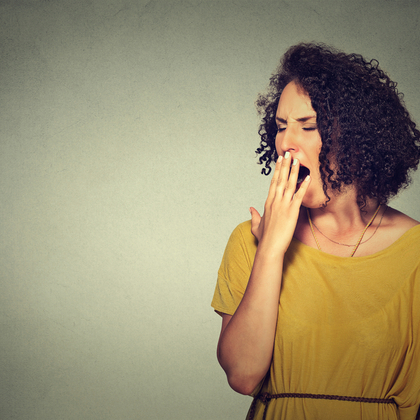
With ever-mounting pressures to succeed and achieve greatness, we often overlook the very cornerstone of our health: sleep. Contrary to the misguided belief that sleep is indulgent, lazy, or a ‘waste of time,’ it is, in fact, a non-negotiable biological imperative. We need it to feel our best, both physically and emotionally.
Here, we delve into the varying sleep needs throughout our lives, the intricacies of the sleep cycle, and the invaluable contributions each sleep stage makes to vital overnight rejuvenation.
How much sleep do I need?
There’s a considerable difference between the amount of sleep you can survive on and the amount your body requires to function optimally.
Sleep experts generally recommend these guidelines (1):
-
Infants (0-3 months): 14-17 hours per day
-
Babies (4-11 months): 12-15 hours per day
-
Toddlers (1-2 years): 11-14 hours per day
-
Nursery school-age (3-5 years): 10-13 hours per day
-
Primary school-age (6-13 years): 9-11 hours per day
-
Teenagers (14-17 years): 8-10 hours per day
-
Young adults (18-25 years): 7-9 hours per day
-
Adults (26+): 7-9 hours per day
Many people still subscribe to the hard and fast rule that you need 8 hours of sleep to be happy and healthy. But sleep is highly individual. A ‘good night’s sleep’ isn’t always a number; it’s also about quality.
Asking yourself the following questions can help can assess whether you’re getting enough sleep to support your daytime performance.
-
Do you wake up feeling refreshed?
-
Do you function optimally during the day?
-
Do you wake up at the same time (within 30 minutes) every day without an alarm?
-
Do you fall asleep within 30 minutes?
-
Do you tend to sleep more on work-free days?
-
Do you rely on caffeine to power you through the day?
Can you oversleep?
Yes, it is possible to sleep too much. If you’re consistently snoozing for more than nine hours and still feel lethargic, you might be oversleeping.
Like insufficient sleep, excessive sleep can disrupt your circadian rhythm and drain your energy. As mentioned, everyone needs different amounts of sleep to function, but as a starting point, try limiting your sleeping window to seven to nine hours to help reset your body clock.
Oversleeping could also be a symptom of an underlying health issue, which you can explore further here.
What are the different stages of sleep?
As you sleep, your body enters a vital state of rest and repair. Ideally, you would complete five or six sleep cycles per night to ensure you wake up energised and refreshed.
Each of these sleep cycles lasts around 90 minutes and moves seamlessly through four distinct stages. The initial three comprise non-rapid eye movement (NREM) sleep, while the fourth consists of rapid eye movement (REM) sleep.
Although each phase has unique characterisations, influencing eye movement, brain wave patterns, and muscle tone in various ways, all play a crucial role in rejuvenating the body and mind.
Stage 1
Stage 1, also N1, marks the transition from wakefulness to rest. It’s characterised by gentle eye movements and is easily interrupted.
During N1, muscle tone relaxes, and brain wave activity begins to slow down. Sometimes, you can experience hypnic jerks – sudden movements of your entire body or the sensation of falling – as you drift into sleep.
Overall, you spend a short time in N1, lasting around one to seven minutes.
Stage 2
As you enter stage 2, or N2, your muscles, breathing, and heart rate relax even more. Brain waves slow, occasionally punctuated by bursts of activity, and awakenings are less frequent (2).
N2 contributes to roughly 40-60% of total sleep time.
Stage 3
Stage 3 is also referred to as N3 or deep sleep. As the body drops further into rest, muscle tone, breathing rate, and pulse decrease. Waking someone during this phase becomes more challenging.
Distinguished by delta waves, brain activity during N3 is considered essential for growth, recovery, memory, and problem-solving (3).
During the early sleep cycles, you spend around 20-40 minutes in deep sleep. However, as the night progresses, this phase gets shorter to accommodate more REM sleep.
REM sleep
REM sleep, the fourth stage of sleep, is associated with dreaming and heightened brain activity. As the name suggests, this phase is defined by periods of rapid eye movement, the purpose of which remains a mystery, though they’re likely associated with the vivid dreaming experienced during this stage.
While all stages of the sleep cycle are important, studies suggest REM sleep is particularly critical for learning, creativity, memory consolidation, and emotional processing (4).
Extended periods of REM sleep are more prevalent during the final hours of sleep, generally in the early morning. As such, those who don’t allocate enough time for sleep are often deprived of the rejuvenating qualities associated with REM sleep. For most adults, REM sleep makes up about 20-25% of sleep.
A helpful indicator of sufficient REM sleep is the ability to remember dreams upon waking. If you can recall your dreams, it could mean you’re getting enough REM sleep.
Why is REM sleep so important?
Despite extensive research, scientists are still unsure why REM sleep is so rejuvenating. One theory is that we don’t secrete norepinephrine – a chemical associated with stress – during REM sleep. The ‘REM calibration hypothesis’ proposes REM sleep resets norepinephrine levels, making the brain less reactive to external stressors and emotional stimuli.
A study published in the Journal of Neuroscience found participants who spent more time in REM sleep had significantly lower fear-related brain activity when tests were conducted the following day (5).
In many ways, REM sleep is a critical form of overnight emotional first aid. It can help regulate brain chemistry, support mental health, and balance overall wellbeing.
How to make sleep a priority?
Against the backdrop of modern life, it's easy to underestimate the critical role sleep plays in your overall well-being. But prioritising it is an investment for your healthspan and lifespan. Here are some simple ways to improve your sleep quality.
-
Stick to a regular sleep routine: Establish a consistent sleep schedule and practice good sleep hygiene every day
-
Watch your caffeine and alcohol intake: Avoid caffeine after midday, and limit alcohol a few hours before bedtime
-
Prioritise relaxation in the evening: Focus on activities that help you unwind
-
Digital detox before bed: Disconnect from technology at least an hour before bedtime, or, even better, remove devices from your bedroom to create a tech-free sleep environment
-
Explore natural remedies: Consider incorporating natural remedies or sleep supplements, such as 5 HTP, magnesium, PEA, Valerian root, and theanine and lemon balm into your bedtime routine
Find out more
If you found this piece useful, you can find similar guidance on our dedicated Sleep Health Hub. Alternatively, please get in touch with our team of expert Nutrition Advisors, who are on hand to provide free, confidential advice via email, phone, and Live Chat.*
*Subject to cookie consent
References:
-
Consensus Conference Panel, Watson NF, Badr MS, Belenky G, Bliwise DL, Buxton OM, Buysse D, Dinges DF, Gangwisch J, Grandner MA, Kushida C, Malhotra RK, Martin JL, Patel SR, Quan SF, Tasali E, Non-Participating Observers, Twery M, Croft JB, Maher E, Heald JL. (2015) "Recommended amount of sleep for a healthy adult: A joint consensus statement of the American Academy of Sleep Medicine and Sleep Research Society." Journal of Clinical Sleep Medicine. 11(6):591-592.
-
Schönauer M, Pöhlchen D. (2018) "Sleep spindles." Current Biology. 28(19):R1129-R1130.
-
Yordanova J, Kolev V, Wagner U, Verleger R. (2010) "Differential associations of early- and late-night sleep with functional brain states promoting insight to abstract task regularity." PloS one. 5(2):e9442.
-
Drago V, Foster PS, Heilman KM, Aricò D, Williamson J, Montagna P, Ferri R. (2011) "Cyclic alternating pattern in sleep and its relationship to creativity." Sleep medicine. 12(4):361-366.
-
Ackermann S, Rasch B. (2014) "Differential effects of non-REM and REM sleep on memory consolidation?" Current Neurology and Neuroscience Reports. 14(2):430.
-
Peever J, Fuller PM. (2016) "Neuroscience: A Distributed Neural Network Controls REM Sleep." Curr Biol. 26(1):R34-R35.
-
Lerner I, Lupkin SM, Sinha N, Tsai A, Gluck MA. (2017) "Baseline Levels of Rapid Eye Movement Sleep May Protect Against Excessive Activity in Fear-Related Neural Circuitry." Journal of Neuroscience. 37(46):11233-11244.
Related Posts

Olivia
Olivia Salter has always been an avid health nut. After graduating from the University of Bristol, she began working for a nutritional consultancy where she discovered her passion for all things wellness-related. There, she executed much of the company’s content marketing strategy and found her niche in health writing, publishing articles in Women’s Health, Mind Body Green, Thrive and Psychologies.
View More



